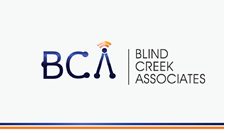Sent: Thursday, April 18, 2024 5:08 PM
To: STDS-802-11@xxxxxxxxxxxxxxxxx <STDS-802-11@xxxxxxxxxxxxxxxxx>
Subject: Re: [STDS-802-11] request for comments: REvME changes to 26.1
HI, Ben,
Interesting points. And, I (somewhat) agree with you. But, the devil here is that the problem is in the details of where and how the word is being used.
For example, in the sentence that Xiaofei is modifying, is (in effect) the definition of “HE STA”, so it’s really trying to say “An HE STA is the thingy that supports (that is, the implementation has the capability _and the capability is enabled in the current instantiation_) all the mandatory features, and some subset (including all, or none) of the optional features, of HE.” (And, we would same for any other significant feature set, replacing “HE” with “VHT”, “HT”, “QoS”, etc..)
Mark
From: Benjamin Rolfe <ben@xxxxxxxxxxxxxx>
Sent: Thursday, 18 April, 2024 16:45
To: STDS-802-11@xxxxxxxxxxxxxxxxx
Subject: Re: [STDS-802-11] request for comments: REvME changes to 26.1
--- This message came from the IEEE 802.11 Working Group Reflector ---
The word "support" and "supports" is used at least 4365 times in 802.11-2020. It means that a conforming implementation has the capability. If you redefine it to mean an optional feature then you change the meaning of each of those 4365 uses of "support", "supported", "supports", etc. This is IMO a very bad idea.
If the intention is that the feature or set of features described is optional functionality, then "may support" is the correct phrase. You may be tempted to use "may optionally" or "optionally supports" but neither is correct: "may" defines an optional requirement (so "optionally" is redundant). "optionally supports" is not actually stating a normative requirement (thus it is not clear what is intended).
I have no opinion on whether support for the indicated functions should be mandatory or optional, only a preference that the group decide which and specify it correctly. The correct choices are "shall support" or "may support" according the group's intentions.
FWIW correct use of language and clear specification is important 😉
Regards
Ben
Benjamin A. Rolfe
Blind Creek Associates
+1 408 332 0725 (Mobile)
+1 408 395 7207 (Office)

From: Xiaofei Wang <00001995ce968e76-dmarc-request@xxxxxxxxxxxxxxxxx>
Sent: Thursday, April 18, 2024 1:06 PM
To: STDS-802-11@xxxxxxxxxxxxxxxxx <STDS-802-11@xxxxxxxxxxxxxxxxx>
Subject: [STDS-802-11] request for comments: REvME changes to 26.1
--- This message came from the IEEE 802.11 Working Group Reflector ---
Dear all,
For RevME, there is a comment 7024 for 26.1 regarding the word “supports”.
The proposed CR is to change Subclause 26.1 as follows (as shown below and in 11-24/718r1). It is mostly editorial changes. Please let me know if you have any comments/changes. There are also a number other sentences that may need to be changed regarding the word “supports”.
26. High-efficiency (HE) MAC specification(11ax)
26.1 Introduction
An HE STA supports the mandatory MAC and MLME functions and may support the optional MAC and MLME functions:
- defined in Clause 26 (High-efficiency (HE) MAC specification(11ax))
- defined in Clause 10 (MAC sublayer functional description) and in Clause 11 (MLME), and the security functions defined in Clause 12 (Security), except when the functions in Clause 26 (High-efficiency (HE) MAC specification(11ax)) supersede them.
A frame successfully transmitted by a non-AP STA in response to a Basic Trigger
frame is a successful frame exchange sequence(#109) initiated by the STA as referred to in Clause 11 (MLME) and Clause 12 (Security).
|
CID |
Clause Number(C) |
Page(C) |
Line(C) |
Comment |
Proposed Change |
Owning Ad-hoc |
|
7024 |
26.1 |
4047 |
7 |
The spec needs to clearly define what the word "supports" means. Traditional if a STA "supports" a feature or functionality, it means that it implements it. However, this sentence "An HE STA supports the MAC and MLME functions defined in Clause 26 (High-efficiency (HE) MAC specification(11ax)) in addition to the MAC functions defined in Clause 10 (MAC sublayer functional description), the MLME functions defined in Clause 11 (MLME), and the security functions defined in Clause 12 (Security), except when the functions in Clause 26 (High-efficiency (HE) MAC specification(11ax)) supersede the functions in Clause 10 (MAC sublayer functional description) or Clause 11 (MLME)." causes confusion since a STA clearly does not always "support" all the functions defined in all these clauses. This sentence in RevME has been used as a base for rejecting another occurrence of the word "support" for a later amendment claiming that this sentence implies that "supports feature A" does not always mean a device will implement feature A. |
either define "supports" can mean optionally implement, or use a different words to convey the meaning. |
MAC |
Xiaofei Clement Wang
Principal Engineer | InterDigital
T: (631) 622.4028
E: Xiaofei.wang@xxxxxxxxxxxxxxxx
To unsubscribe from the STDS-802-11 list, click the following link: https://listserv.ieee.org/cgi-bin/wa?SUBED1=STDS-802-11&A=1
To unsubscribe from the STDS-802-11 list, click the following link: https://listserv.ieee.org/cgi-bin/wa?SUBED1=STDS-802-11&A=1
To unsubscribe from the STDS-802-11 list, click the following link: https://listserv.ieee.org/cgi-bin/wa?SUBED1=STDS-802-11&A=1
To unsubscribe from the STDS-802-11 list, click the following link: https://listserv.ieee.org/cgi-bin/wa?SUBED1=STDS-802-11&A=1